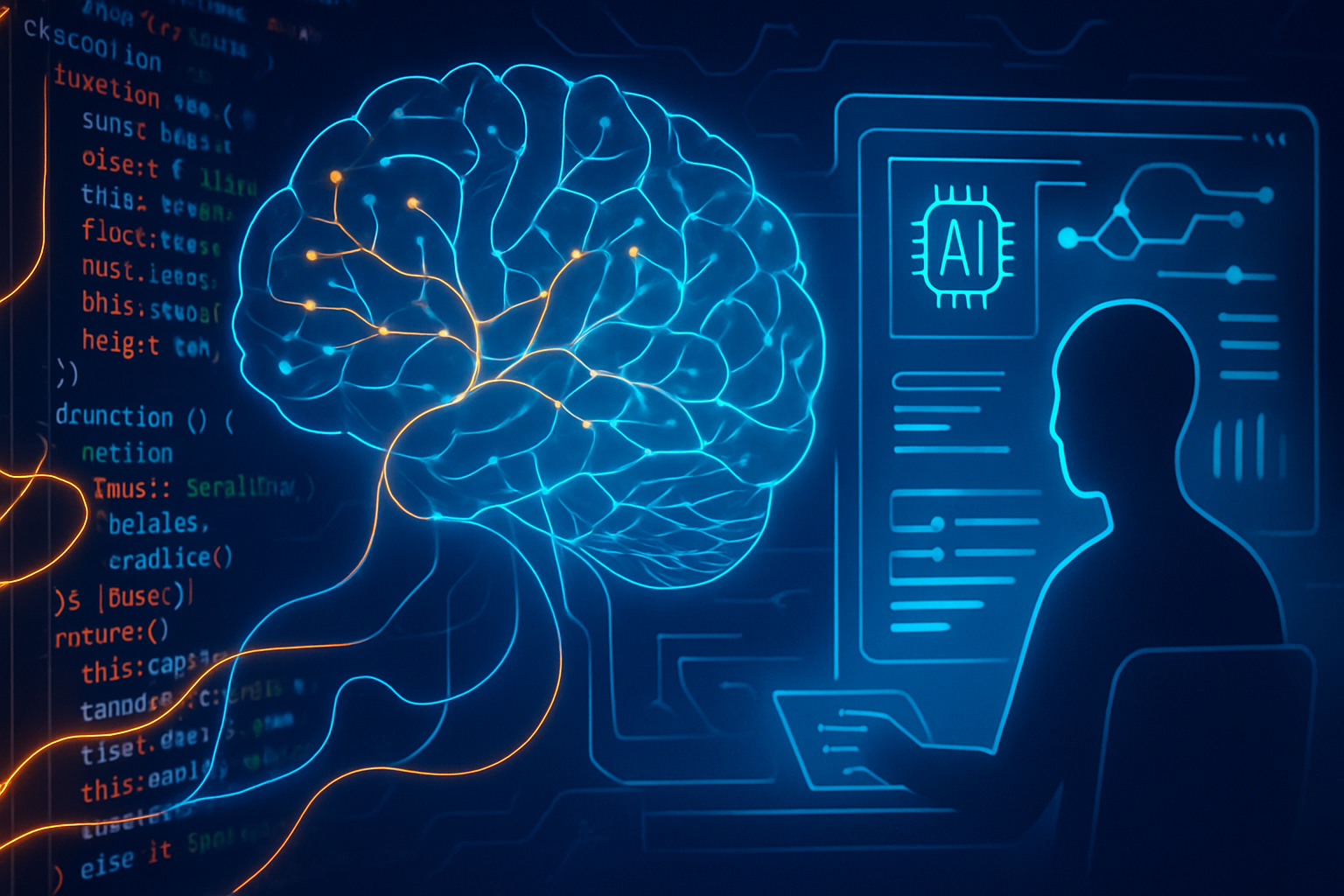The world of software development is on the cusp of another major transformation. On May 16, 2025, OpenAI unveiled a research preview of its groundbreaking new Codex agent – a sophisticated, cloud-based AI software engineering partner designed to work alongside developers, automating complex tasks and boosting productivity like never before. If you've been following AI in coding, you know Codex and its power behind tools like GitHub Copilot. But this new agent takes things to a whole new level. Forget simple autocompletion; we're talking about an AI teammate capable of tackling entire coding assignments.
This is big news, and if you've landed here from our TikTok, you're about to get the full scoop on what this means for you, your development workflow, and how your business can leverage this cutting-edge technology!
What is the New OpenAI Codex Agent?
At its heart, the new Codex is an AI-powered software engineering agent. It's not just a tool that suggests snippets of code; it's a system that can understand your codebase, take on complex tasks, and work on them in parallel. Powered by codex-1, a version of OpenAI's o3 model specifically optimized for software engineering, this agent can:
- Write new features, accelerating your product development cycle.
- Answer complex questions about your existing codebase, reducing onboarding time for new developers and aiding in maintenance.
- Fix bugs identified in your issue tracker, freeing up your team for more strategic work.
- Propose pull requests for your review, complete with justifications and test evidence.
- And much more, all within its own secure cloud sandbox environment.
Codex-1 was trained using reinforcement learning on real-world coding tasks, enabling it to generate code that mirrors human style, adheres precisely to instructions, and can even iteratively run tests until it achieves a passing result. For businesses, this means potentially faster time-to-market, reduced development costs, and the ability to tackle more ambitious projects.
How Does the Codex Agent Work?
Accessing and interacting with the Codex agent is designed to be intuitive, fitting into existing developer workflows. Here's a glimpse into its operational process:
- Task Assignment: Developers can access Codex through the sidebar in ChatGPT. You assign tasks by typing a natural language prompt (e.g., "Implement a new user authentication endpoint using OAuth 2.0") and clicking "Code," or ask questions about your codebase by clicking "Ask."
- Isolated Environments: Each task is processed independently in a separate, isolated cloud sandbox preloaded with your codebase (via GitHub repository connection). This ensures that experiments or changes don't affect your live environment until reviewed and approved.
- Capabilities: Codex can read and edit files, and run commands like test harnesses, linters, and type checkers. Task completion can take anywhere from 1 to 30 minutes depending on complexity – think of it as delegating a mini-project to a junior developer.
- Transparency & Verification: A crucial feature for any business relying on AI is verifiability. Codex provides evidence of its actions through citations of terminal logs and test outputs, allowing developers to trace every step.
- Review & Integration: Once a task is complete, your team can review the results, request revisions, open a GitHub pull request, or directly integrate the changes into your development branch.
- Guidance with AGENTS.md: You can guide Codex's behavior within your repository by creating
AGENTS.mdfiles. These text files can inform Codex how to navigate your codebase, which commands to run for testing, and how to adhere to your company's specific coding standards and project practices.
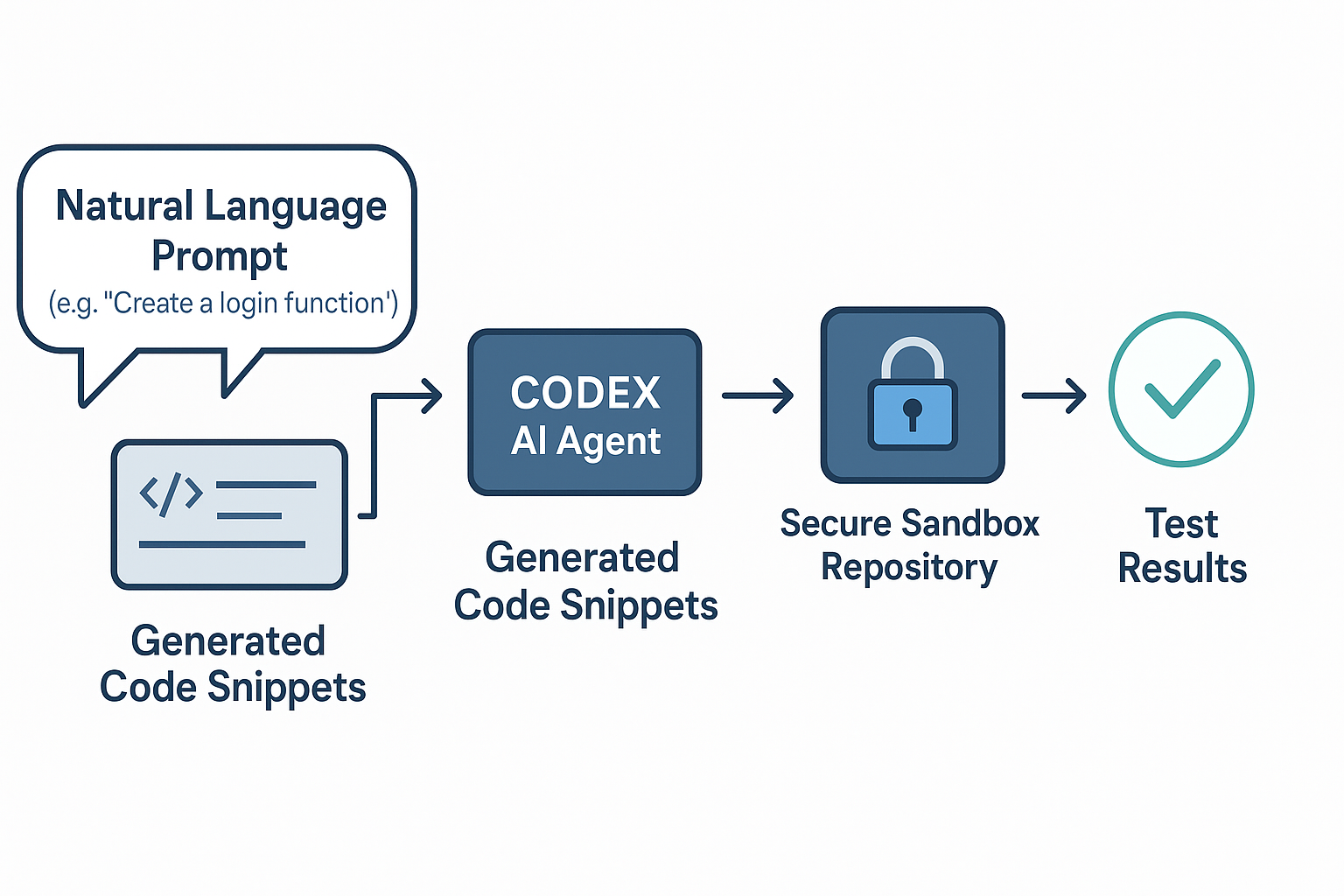
Key Features & Capabilities Fueling Business Advantage
The new Codex agent isn't just about generating code; it's about providing a comprehensive AI assistant. Its key features offer tangible benefits for businesses:
- Agentic Behavior: It operates as an autonomous agent, capable of handling multi-step tasks from start to finish. This means you can offload entire, well-defined units of work.
- Improved Code Quality: Codex-1 aims for "cleaner patches" that are more aligned with human coding preferences and standards, potentially reducing the review burden and improving maintainability.
- Verifiable Outputs: Citations and logs ensure transparency, crucial for debugging, auditing, and building trust in the AI's contributions.
- Iterative Testing: The ability to run tests repeatedly and make adjustments until a passing result is achieved can significantly improve the reliability of the generated code.
- Multi-Language Prowess: While most effective in Python, Codex can generate code in over a dozen languages (Go, JavaScript, Perl, PHP, Ruby, Shell, Swift, TypeScript, etc.), making it versatile for diverse tech stacks.
- Enhanced Productivity: By automating routine and time-consuming tasks, your development team can focus on higher-value activities like architectural design, complex problem-solving, and innovation.
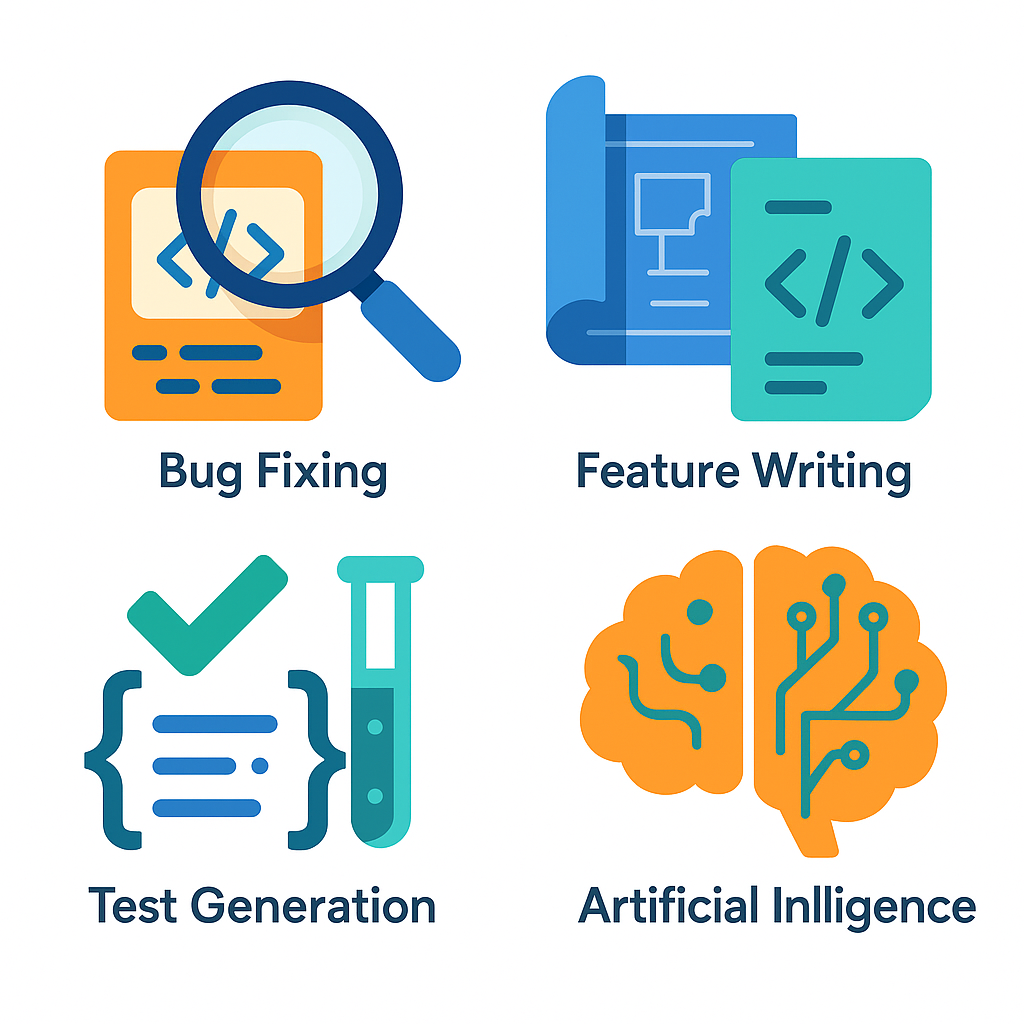
Real-World Applications & Early Use Cases: Proof of Concept
The practical impact of Codex is already being demonstrated by early adopters:
- OpenAI Internal Teams: Use Codex to offload repetitive tasks like refactoring, renaming, writing tests, scaffolding new features, and even drafting documentation. This internal "dogfooding" helps refine the tool for real-world use.
- Cisco: Exploring how Codex can help engineering teams bring ambitious ideas to life faster, potentially accelerating innovation in networking and security solutions.
- Temporal: Uses Codex to accelerate feature development for their workflow orchestration platform, debug issues, write tests, and refactor large codebases.
- Superhuman: Speeds up repetitive tasks in their email client development and enables product managers to contribute lightweight code changes, streamlining the development pipeline.
- Kodiak Robotics: Uses Codex for writing debugging tools, improving test coverage, and refactoring code for their autonomous driving technology, a field where software reliability is paramount.
These examples highlight how businesses across different sectors can integrate Codex to solve specific challenges and enhance their development capabilities.
Codex CLI Updates: Power in Your Terminal
Alongside the new agent, OpenAI has also released a smaller version of codex-1, called codex-mini-latest, specifically for the Codex CLI. This model is optimized for low-latency code Q&A and editing directly in your terminal, perfect for developers who prefer a command-line interface. Signing into Codex CLI is also now easier with ChatGPT account integration.
Availability and Pricing: Getting Access
The new Codex agent is rolling out to ChatGPT Pro, Enterprise, and Team users globally. OpenAI is providing generous access initially, which will be followed by rate-limited access and flexible pricing options. Support for Plus and Edu users is planned soon.
For businesses looking to integrate Codex capabilities via API, codex-mini-latest is priced at $1.50 per 1M input tokens and $6 per 1M output tokens, with a 75% prompt caching discount. This opens up avenues for custom tool development and deeper integration into proprietary systems.
Addressing Potential Issues: Security, Ethics, and Best Practices
While incredibly powerful, adopting any new technology requires careful consideration of its limitations and potential risks. Businesses should be aware of:
- Accuracy & Reliability: Like all LLMs, Codex can make mistakes or misunderstand complex, multi-step prompts. Rigorous human oversight, code reviews, and thorough testing of all AI-generated code are non-negotiable.
- Secure Execution Environment: Codex operates entirely within a secure, isolated cloud container. During task execution, internet access is disabled, limiting the agent’s interaction solely to the code explicitly provided via GitHub repositories and pre-installed dependencies configured by the user. It cannot access external websites, APIs, or other services.
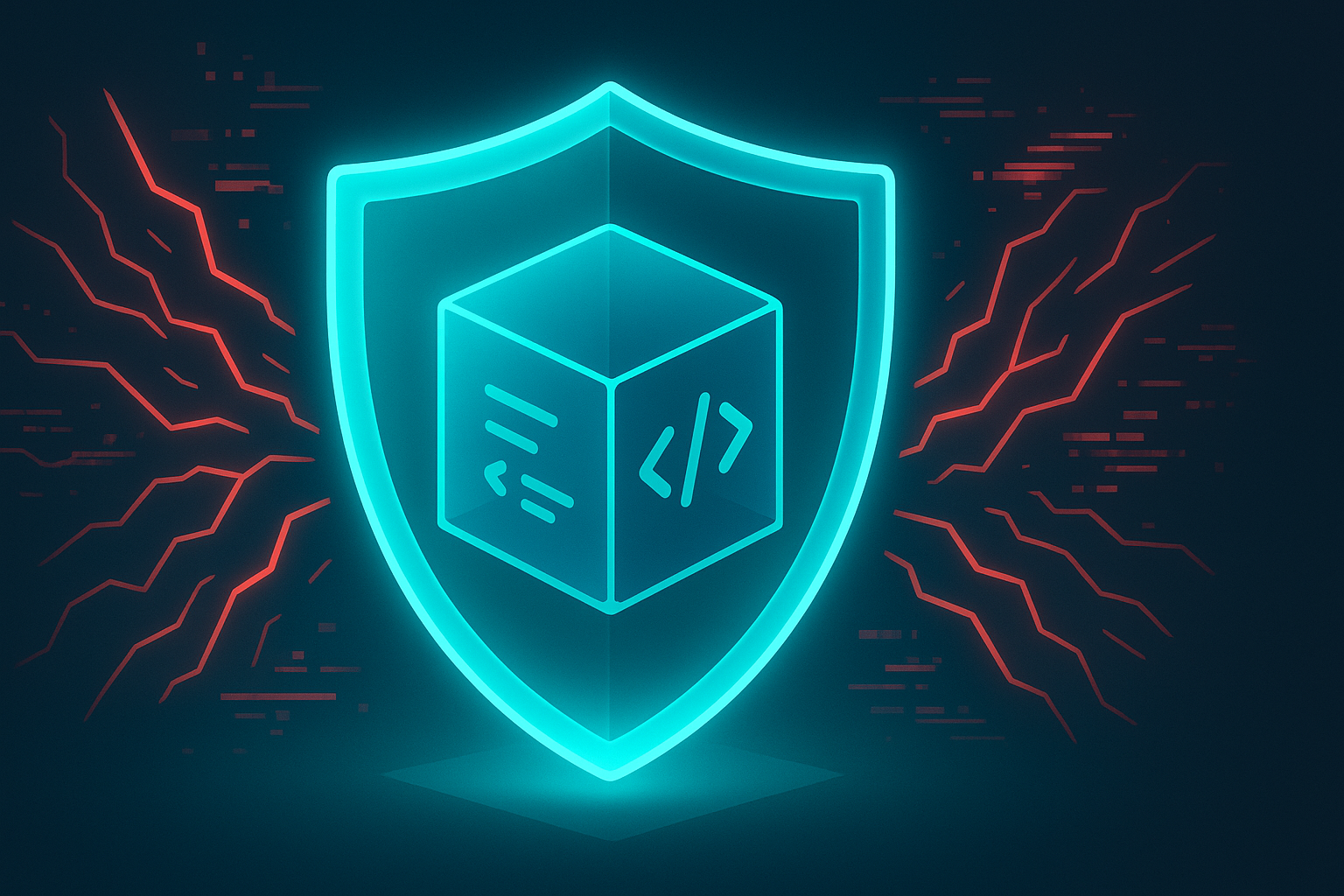
- Malware Refusal & Responsible AI: Codex was trained to identify and precisely refuse requests aimed at the development of malicious software, while clearly distinguishing and supporting legitimate tasks. OpenAI has also enhanced its policy frameworks and incorporated rigorous safety evaluations.
- Over-Reliance & Skill Development: While boosting productivity, ensure your team, especially junior developers, continues to develop core programming skills. Codex should be a tool for augmentation, not a crutch.
- Copyright & Licensing: The use of code generated by models trained on vast datasets (including open-source code) continues to raise legal questions. While OpenAI states that only about 0.1% of generated code might contain direct copies, businesses should consult legal counsel regarding IP implications for critical projects.
The Future of Codex and AI-Assisted Programming: A Collaborative Horizon
OpenAI envisions a future where developers drive the work they want to own and delegate the rest to highly capable AI agents, leading to increased speed and productivity. They see the current real-time pairing (like in IDEs) and asynchronous task delegation (like the new Codex agent) converging into a unified workflow.
Expect more interactive and flexible agent workflows, allowing developers to provide guidance mid-task, collaborate on implementation strategies, and receive proactive progress updates. We also anticipate deeper integrations across the tools businesses already use: today Codex connects with GitHub, and soon you’ll be able to assign tasks from Codex CLI, ChatGPT Desktop, or even tools such as your issue tracker or CI/CD system.
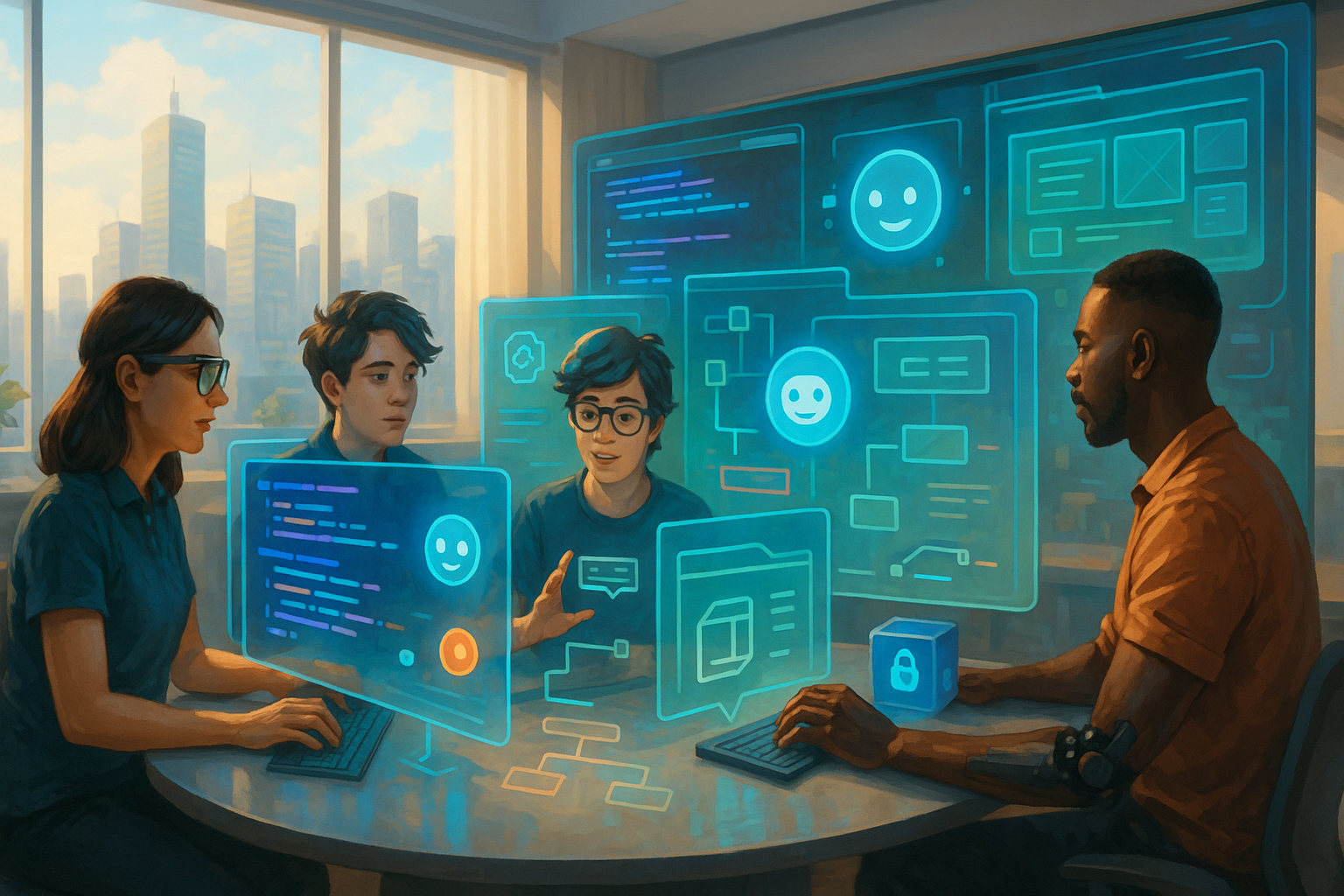
Getting Started & Best Practices for Your Business
Ready to explore how Codex can benefit your organization? Here are some practical steps:
- Access & Experimentation: If you have ChatGPT Pro, Enterprise, or Team accounts, start experimenting with well-defined, non-critical tasks. This will help your team understand its capabilities and limitations.
- Define Clear Use Cases: Identify repetitive, time-consuming, or bottleneck-prone areas in your development lifecycle where Codex could provide the most impact (e.g., unit test generation, boilerplate code, initial feature scaffolding).
- Be Specific with Prompts: The quality of Codex's output heavily depends on the clarity and detail of your instructions. Train your team on effective prompt engineering.
- Establish Review Processes: Implement mandatory code reviews for all AI-generated code. This is crucial for quality control, security, and knowledge transfer.
- Utilize AGENTS.md: For consistent behavior and adherence to your project standards, leverage
AGENTS.mdfiles to guide Codex. - Focus on Augmentation: Encourage your team to view Codex as a collaborative tool that augments their skills, freeing them to focus on complex problem-solving, architecture, and innovation.
- Stay Informed: This is a rapidly evolving field. Keep up-to-date with OpenAI's announcements and best practices.
Conclusion: Partnering with AI for a Smarter Development Future
The new OpenAI Codex agent is more than just an impressive piece of technology; it's a strategic asset for businesses looking to innovate faster and more efficiently. By intelligently automating parts of the software development lifecycle, Codex empowers your technical teams to achieve more, reduce drudgery, and focus on creating truly impactful solutions.
While it's still in a research preview phase, the potential to reshape how software is built is undeniable. Embracing this AI-powered future, with a clear understanding of its capabilities and a thoughtful approach to integration, can provide a significant competitive advantage. The era of the AI coding teammate is here – how will your business leverage it?
FAQs About the New OpenAI Codex Agent for Businesses
- Q: How can the new Codex agent specifically help my business reduce development costs?
- A: By automating time-consuming tasks like writing boilerplate code, generating unit tests, refactoring, and fixing straightforward bugs, Codex can reduce the number of developer-hours required for these activities. This allows your existing team to be more productive or potentially handle a larger volume of work without immediate team expansion.
- Q: Is the code generated by Codex secure enough for enterprise applications?
- A: Codex operates in a secure, isolated environment and is trained to refuse malicious requests. However, all AI-generated code should be treated like any third-party code: it requires thorough review, security scanning, and testing by your team to ensure it meets your enterprise security standards before deployment.
- Q: Can Codex be customized to understand my company's specific coding standards and internal libraries?
- A: Yes, to an extent. By preloading your codebase (which includes your internal libraries) and using
AGENTS.mdfiles, you can provide Codex with context and instructions regarding your coding conventions, preferred testing frameworks, and how to navigate your specific project structure. - Q: How does this Codex agent compare to existing AI coding tools my team might already be using?
- A: While tools like GitHub Copilot excel at real-time code suggestions and autocompletion within an IDE, the new Codex agent is designed for more autonomous, asynchronous task completion. It can take on larger, well-scoped "assignments" (like implementing a feature or fixing a bug across multiple files) and deliver a proposed solution, acting more like a delegate AI team member.
- Q: What's the learning curve for my development team to start using Codex effectively?
- A: The basic interaction via ChatGPT is straightforward. The main learning curve involves mastering prompt engineering – how to ask Codex for what you want in a clear, detailed, and unambiguous way. Experimentation with different types of tasks and prompts will be key to maximizing its effectiveness.
